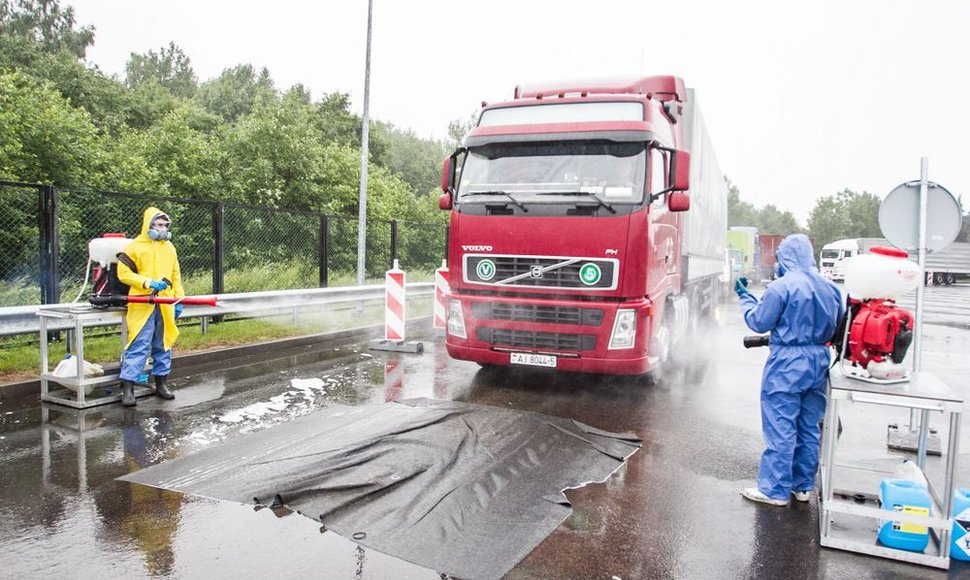Butkevičius made the decision after talking to the European Commission’s (EC) representatives who said that the Commission would approve funding for an action plan on prevention of African swine fever at its next meeting, the government’s office said in a press release.
Until then, disinfection of vehicle wheels and passengers’ footwear at border checkpoints would be financed by the veterinary service.
“Provision of services and the size of charges for those services, i.e. for mandatory disinfection at border checkpoints, will be considered as soon as we know the amount of compensation earmarked by the Commission and the intensity of support for the implementation of the action plan to prevent African swine fever,” the press release quoted Butkevičius as saying.
The Cabinet on Wednesday decided that the disinfection procedure, including the amount of the charge, should be set by the veterinary service. The levy has angered haulage companies, which say that they are made to bear all disinfection costs alone.
The government last month allocated 750,000 litas (EUR 217,391) for disinfection at the border. Milius said the money had run out last week and funds “from other expenses” were now being used for this purpose.
It is estimated that disinfection of vehicles and the footwear of people coming from Belarus costs around 17,000 litas daily.












